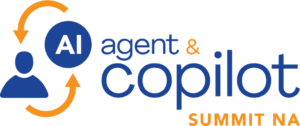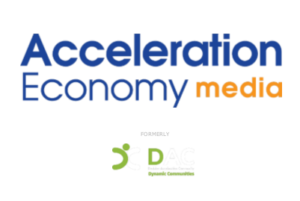AI Agent & Copilot Podcast: Siemens Copilot Addresses Labor Shortage in Automation Engineering
Welcome to the AI Copilot Podcast, analyzing the latest AI Copilot and agent developments from Microsoft and its partners, delving into customer use cases, and exploring how AI plus the Cloud helps customers reimagine their business. In this episode, Tom Smith speaks with Claus Romanowsky, Senior Business Development Manager, Innovation & Strategy Sales at Siemens in Germany, about its use of Microsoft Copilot technology to build an industry copilot for manufacturing.
This episode is sponsored by the AI Agent & Copilot Summit NA, taking place March 17-19, 2026 in San Diego, California.
Highlights
Introduction to Industrial Copilot (01:18)
Romanowsky explains the genesis of the Industrial Copilot, highlighting the global shortage of skilled labor in automation engineering. The Industrial Copilot aims to address this shortage through two dedicated use cases: Industrial Copilot for Engineering and Industrial Copilot for Operations. The project is currently being tested with over 100 companies.
Collaboration with Microsoft (03:40)
Romanowsky elaborates on the strategic decision to work with Microsoft, emphasizing easy integration with existing customer platforms and software infrastructure. Siemens already uses OpenAI technology, making it easier to scale the Industrial Copilot. The Industrial Copilot is integrated with the Siemens Totally Integrated Automation (TIA) Portal; it’s using Microsoft’s Azure ChatGPT and GPT-4 for AI models.
The Industrial Copilot was envisioned as a customer-focused initiative but also benefits Siemens internally. Siemens holds thousands of AI patents and has over 1,500 AI experts among its employees.
Use Cases and Benefits of Industrial Copilot (09:13)
Romanowsky shares a success story of a customer, ThyssenKrupp, using the Industrial Copilot for various use cases. The copilot generates Structured Control Language (SCL) code, explains SCL code, and finds answers in the TIA Portal documentation. Code generated by the copilot requires minimal adaptation. The Industrial Copilot enables faster code generation and reduces time to market significantly.
Impact on Time to Market and Future Plans (11:59)
Tangible benefits of the Industrial Copilot include faster project completion and reduced development time. Siemens is planning additional Industrial Copilots to address different use cases in the manufacturing field. The new copilots will focus on design, planning, engineering, operations, and service, each optimizing processes and resource allocation.
Role of AI Agents and Future Initiatives (16:47)
AI agents play a crucial role in the future development of GenAI-based software at Siemens. An example of an AI agent was shown at a trade fair, highlighting changes in technical drawings. Siemens is working on new versions of the Industrial Copilot, with a new release expected in spring.

AI Agent & Copilot Summit NA is an AI-first event to define the opportunities, impact, and outcomes possible with Microsoft Copilot for mid-market & enterprise companies. Register now to attend AI Agent & Copilot Summit in San Diego, CA from March 17-19, 2026.


